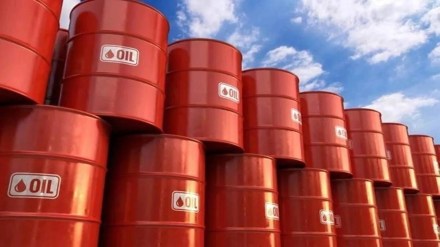City gas distribution (CGD) sales volume is surging 18-20 per cent this fiscal compared with a slattosh run last fiscal, said a CRISIL report. This is driven by demand pull from improving price competitiveness of domestic gas compared with substitute fuels because of falling gas prices and supply-side impetus from continued growth in distribution infrastructure. Operating margin, it added, will improve too riding on reduced procurement cost and better absorption of fixed cost due to higher volume, which will support the credit quality of distributors.
CRISIL Ratings assessed nine distributors with ~90 per cent market share for fiscal 2023 to reach the conclusions. It said that the movement in gas prices is a crucial operational parameter for distributors as it impacts their competitiveness compared with alternate fuels. This, in turn, impacts their volume growth.
Last fiscal, administered pricing mechanism (APM)-based and global gas prices surged ~200 per cent and ~26 per cent, respectively on-year because of supply-chain disruptions and high demand in the west following the Russia-Ukraine conflict. APM and international gas prices had peaked to $8.57 per metric million British thermal unit (MMBtu) and ~$40/MMBtu, respectively. “This impacted the volume sold at compressed natural gas (CNG) stations (which use APM gas) and to industries (which primarily use imported natural gas as APM gas is not allowed for industrial consumption),” the report said.
CNG volume growth fell due to reduced competitiveness versus alternative fuels (~30 per cent last fiscal from 45 per cent in fiscal 2022). The impact was even higher for piped natural gas for industrial consumption (PNG-I), which saw volume fall as industrial LPG and propane turned cheaper. This situation is now expected to reverse.
Ankit Hakhu, Director, CRISIL Ratings, said, “Prices have started softening this fiscal for two reasons. One is the implementation of the Kirit Parikh Committee recommendations, which caps APM prices at $6.5/MMBtu for this fiscal even as global crude prices have risen. Two, average international gas prices are expected to remain low (~$10-15 per MMBtu this fiscal against an average $27 last fiscal) amid warmer winters in Europe and the US, better storage inventories and slowing industrial growth. International prices have already corrected to ~$12.5 this August.”
Lower gas prices, CRISIL report said, will help CNG companies to recoup their price competitiveness against alternative fuels to ~35-40 per cent — or levels seen before last fiscal — and support demand push. CNG vehicle sales have already grown ~35 per cent on-year this fiscal. In addition, continued infrastructure build-out will further improve sustainability of volume growth.
Ankush Tyagi, Associate Director, CRISIL Ratings, said, “The number of CNG stations had grown ~28 per cent on-year at the start of this fiscal. This will provide a leg-up to volume. Domestic and industrial connections are also up more than 20 per cent, which will support growth of domestic and industrial natural gas. Overall, we expect CGD volume to grow by 18-20 per cent this fiscal, with CNG and domestic PNG growing 18-23 per cent and the industrial segment 10-15 per cent.”
Improving volume and softening input prices will support recovery in operating margin to Rs 8-10 per standard cubic metre (scm) from Rs 6.5-7.0 per scm seen in the past two fiscals. That would improve the cash accrual of distributors, which have lined up ~Rs 90,000 crore capex over the next 4-5 fiscals. So, while debt will increase, debt to cash flow (Ebitda) ratio will remain in check between 1.0-1.3 times for this fiscal (~0.8 time last fiscal), leading to stable credit quality. Geopolitical developments, their impact on energy prices and competitiveness against alternative fuels will bear watching in the road ahead, CRISIL said.
